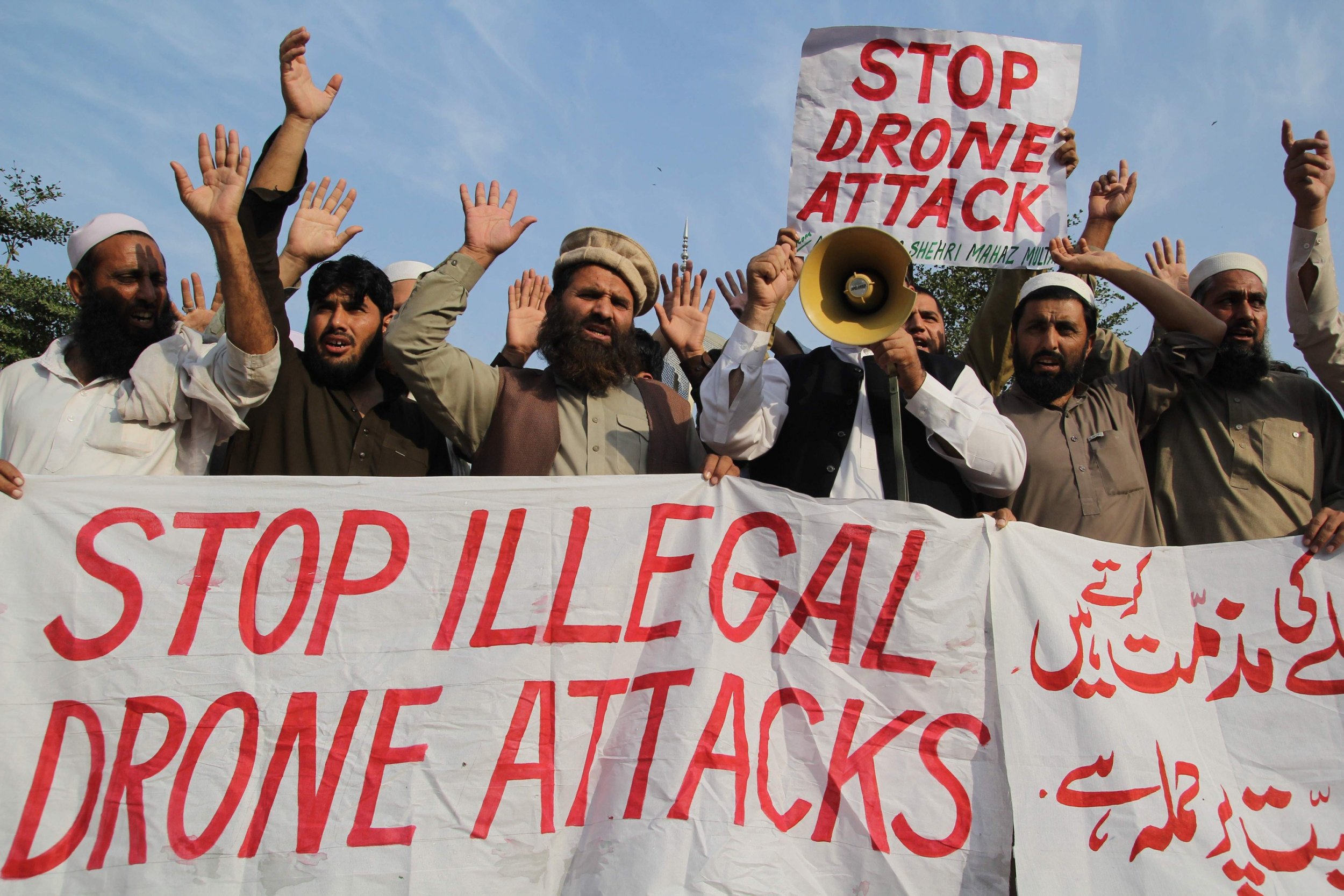
The CIA is pushing for approval to conduct lethal drone strikes in Afghanistan for the first time, an idea that some in the Pentagon reportedly worry could place U.S. troops in danger.
Despite the reported concerns, President Donald Trump is leaning toward giving a thumbs up to the proposal and Defense Secretary Mattis isn't necessarily opposed, The New York Times reports.
Newsweek sought comment from the White House and Deparment of Defense, but did not hear back by the time of publication.
Under current policy, the CIA has authority to conduct covert drone strikes against Al-Qaeda and other terrorist targets in Pakistan, but the Pentagon generally takes the lead on drone strikes against suspected terrorists in Afghanistan, Yemen, Somalia, Libya and other conflict zones.
The Pentagon publicly acknowledges the drone strikes it conducts, which includes information on civilian casualties, but the CIA is not required to do so.
If the CIA is ultimately granted the authority to operate in Afghanistan, it could potentially conduct strikes that accidentally kill civilians, but it would not have to acknowledge them. Some Pentagon officials reportedly fear this could place U.S. troops in danger because drone strikes have been known to increase animosity toward the U.S., especially when civilian deaths occur. If troops in Afghanistan had no knowledge of strikes conducted near where they're deployed, they'd likely be ill-prepared to deal with potential backlash.
That people within the Pentagon are reportedly expressing alarm about this CIA push is definitely a cause for concern, Dr. Peter W. Singer, a leading expert on 21st century security issues, tells Newsweek.
At the same time, others urge against making too many assumptions about the potential consequences of CIA drone strikes in Afghanistan.
"We simply do not know whether increased authority for CIA drone strikes would lead to more risk for U.S. troops or civilian casualties," Dr. Michael C. Horowitz, professor of political sciece at the University of Pennslyvania, tells Newsweek.
"Precisely due to their more covert nature, accurate data is harder to come by for CIA strikes than those undertaken by the U.S. military," he adds.
If the CIA is ultimately granted the authority to conduct strikes in Afghanistan, Horowitz says it might also be necessary to increase coordination between the U.S. intelligence community and deployed U.S. forces.
The U.S. has around 11,000 troops in Afghanistan, and the Trump administration recently decided to send 4,000 reinforcements.
Amid this ramp-up, CIA Director Mike Pompeo has reportedly been working to convince Trump to approve the proposal for Afghanistan drone strikes and seems confident the president will side with him.
"When we ask for more resources, we get it," Pompeo recently said on Fox News, adding: "If I were [Al-Qaeda], I'd count my days."
Since 2007, the U.S. government has made public the overall amount it spends on intelligence, but it does not disclose how that money is actually allocated. This means the CIA could potentially purchase any number of drones and the public would never know.
The use of drones for the surveillance and targeted killings of terrorists began under President George W. Bush in 2002, but expanded exponentially after President Barack Obama took office.
When Obama entered the White House, he faced a U.S. public that wanted him to take the fight to terrorists without putting more boots on the ground. Drones were an ostensible solution to this desire, as they kept U.S. soldiers out of danger while also allowing the military to take out terrorists.
Drones would end up being one of the most controversial aspects of Obama's presidency, largely due to reports of civilian casualties and a lack of transparency.
A U.S. intelligence report released in January claimed up to 117 civilians were killed by the 526 drone strikes conducted during Obama's presidency, though independent groups have placed the total number killed far higher.
Critics have argued America's drone program is illegal, unethical and ineffective in the long run in terms of eliminating terrorism. Some have gone as far to accuse Obama of war crimes over his use of drones.
Amid such criticism, the Obama administration increased restrictions on the CIA's ability to operate in Afghanistan and elsewhere, in an effort to reduce civilian casualties and increase transpareny.
If Trump goes in the opposite direction, it could open the door for the CIA to become increasingly involved in a number of conflicts—not just Afghanistan. This could mean more dead civilians in multiple countries, which would undoubtedly increase enmity toward America and prolong the so-called war on terror.
Uncommon Knowledge
Newsweek is committed to challenging conventional wisdom and finding connections in the search for common ground.
Newsweek is committed to challenging conventional wisdom and finding connections in the search for common ground.
About the writer
To read how Newsweek uses AI as a newsroom tool, Click here.








